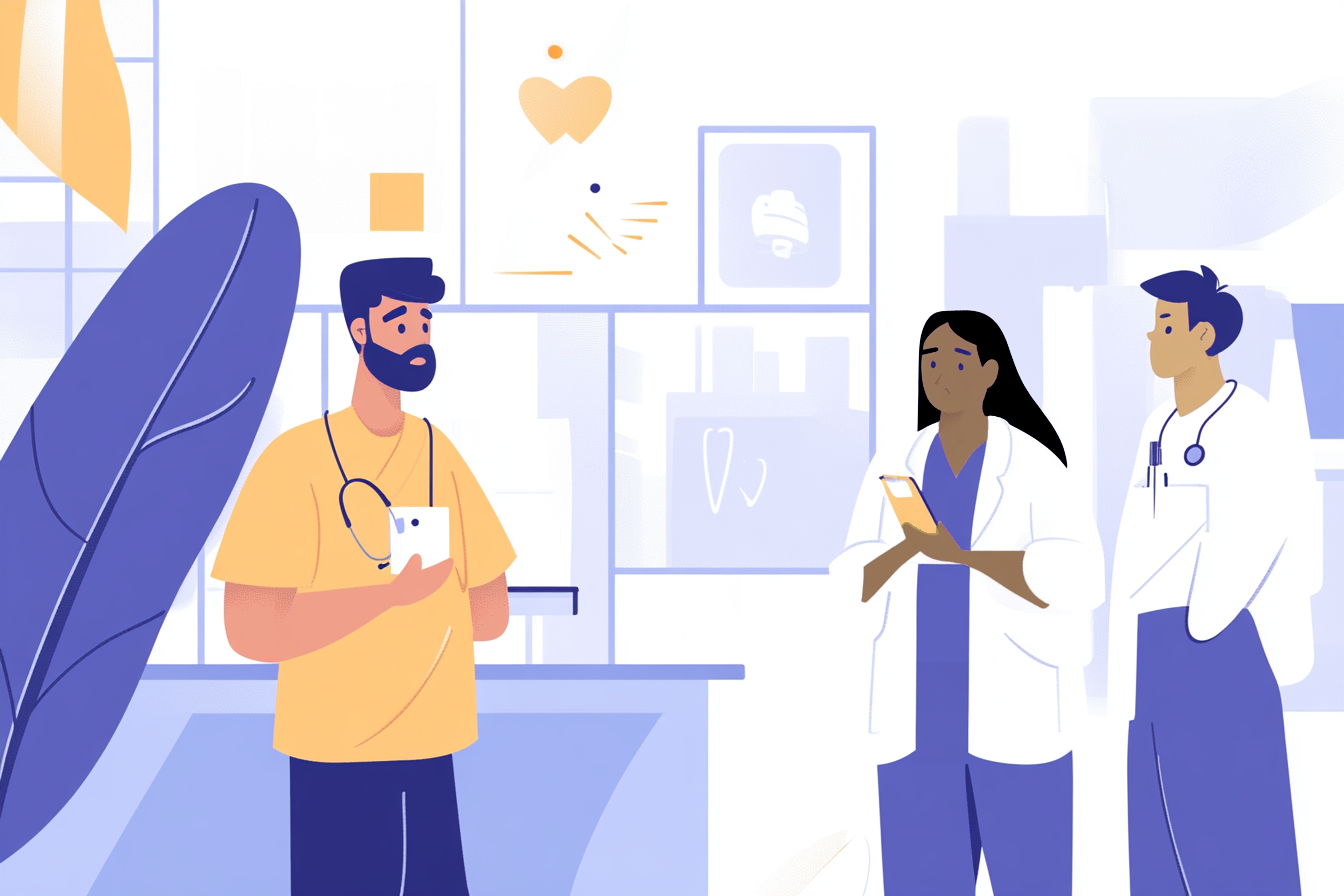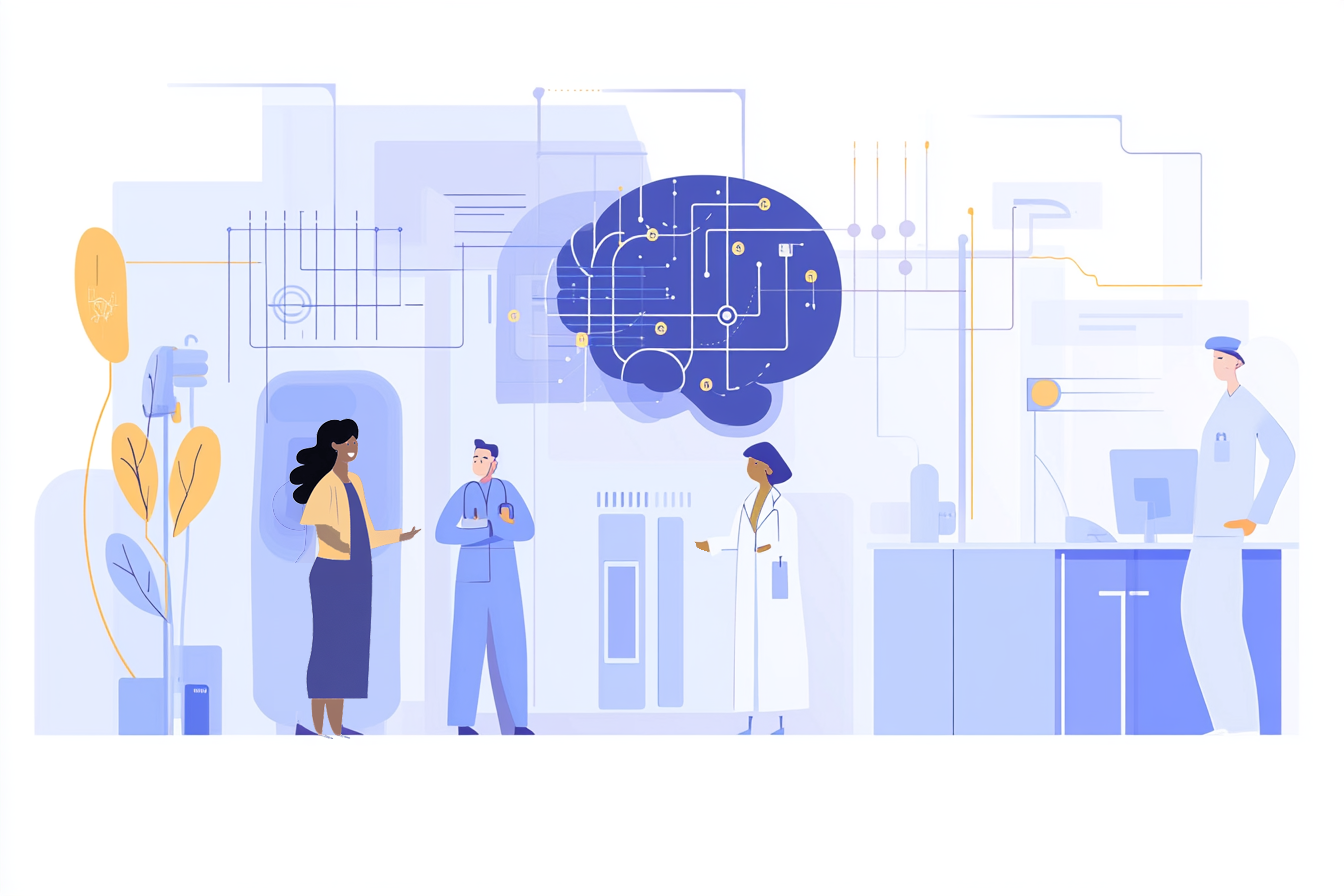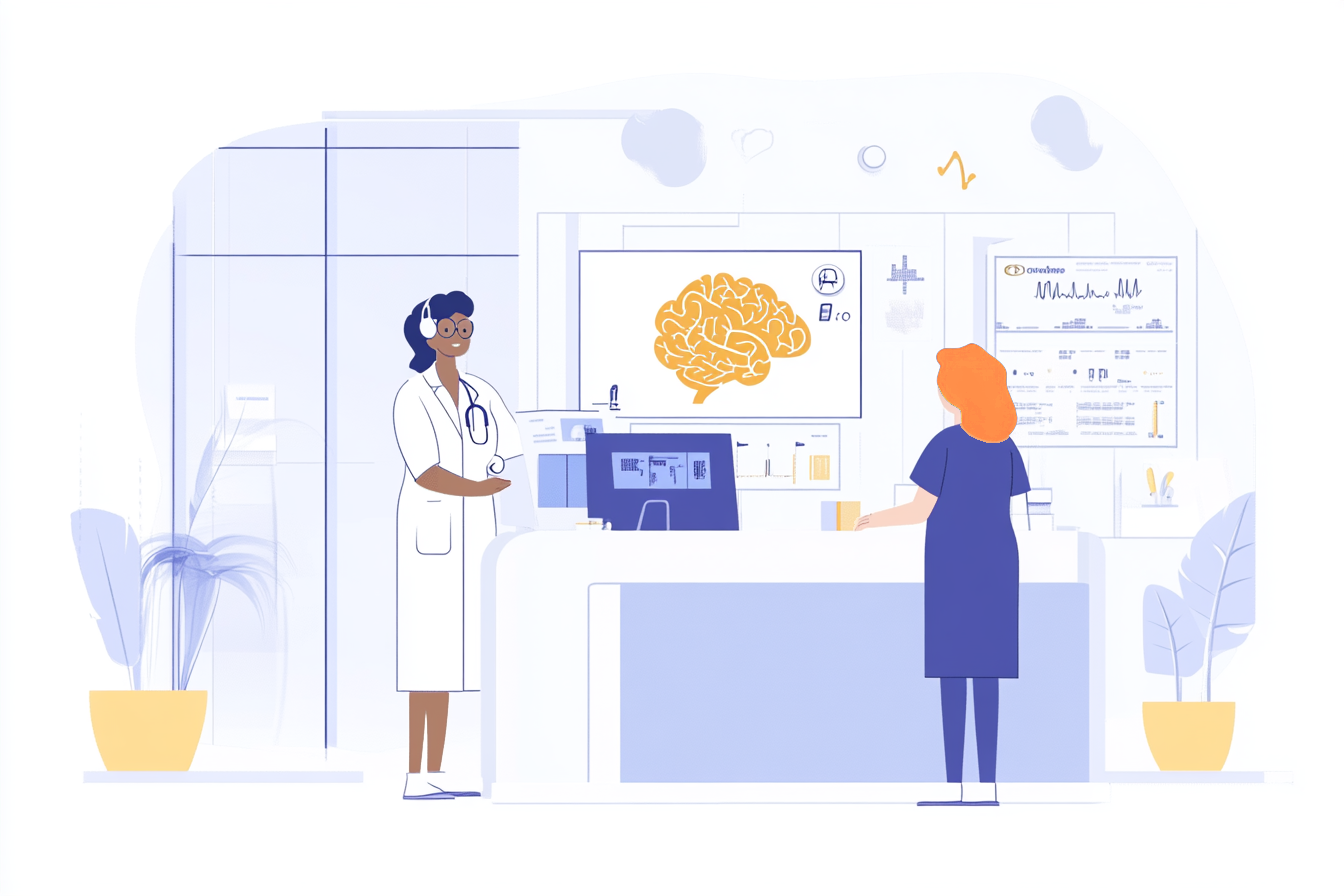The NHS is no stranger to digital transformation initiatives, but the journey has been far from smooth. Over the past two decades, the health service has poured billions into digital projects with mixed success, and in some cases, high-profile failures have left a legacy of scepticism.
Transforming Digital Transformation
For instance, the National Programme for IT (NPfIT), launched in 2002, aimed to revolutionise patient records, making them accessible across the country. But nearly £10 billion later, the programme was scrapped, leaving little to show for its ambition. Another misstep came with the Care.data initiative, which sought to centralise patient data from GP practices but faced a public backlash over privacy concerns and was ultimately abandoned in 2016.
These projects reflect a pattern that has been all too familiar in the NHS: bold promises and ambitious digital transformations, derailed by complex requirements, inadequate planning, and the unique pressures of healthcare. In many cases, these failures have been costly, both in terms of budget and public trust.
Yet, something has changed in recent years. Artificial Intelligence (AI) technology is finally gaining momentum, and we’re seeing practical applications that show the real potential of digital transformation, from operational efficiency improvements to enhanced patient care.
While these advances have been sweeping across other industries for some time, from retail to finance, it’s only now that the NHS seems to be benefiting in a more accessible and sustainable way. NHS England has been at the forefront of leveraging AI to transform healthcare delivery, with initiatives aimed at enhancing efficiency and improving patient outcomes.
Public awareness of AI ramped up significantly in 2022, with a key turning point in mainstream acceptance and usability, with the advent of OpenAI’s ChatGPT, a conversational AI model that demonstrated the power of advanced natural language processing in an accessible format. ChatGPT showcased AI’s ability to enhance daily workflows, from assisting in customer service to drafting content. As AI continues to prove its value in diverse settings, the NHS is beginning to tap into this momentum.
And one of the most promising examples of this new wave of practical, accessible AI is QuantumLoopAi. Rather than tackling complex clinical diagnostics, QuantumLoopAi focuses on a simpler, yet vital area that has long been overlooked: reducing the administrative burden on GP reception staff.
QuantumLoopAi offers a targeted solution that is quick to deploy, cost-effective, and, most importantly, effective. It’s a compelling case of AI meeting the everyday needs of an overstretched workforce and an overstretched service.
A Long History of Unfulfilled Digital Promises

The NHS has had a turbulent history with digital transformation. For many years, the push to digitalise and automate processes, and digitise the data to achieve this, has often led to high-budget projects with little return on investment. Beyond NPfIT and Care.data, there was the infamous COVID-19 contact-tracing app, which was initially designed as a centralised system but ran into compatibility issues, cost millions, and eventually had to be re-engineered as a decentralised app at an additional expense.
These cases underline a common problem: when digital projects in the NHS fail, they fail publicly and expensively. The challenges of implementing technology at scale in a complex, high-stakes environment like healthcare are immense. Beyond technical hurdles, these projects have faced resistance from both staff and patients, and any digital transformation in the NHS must balance ease of use, data privacy, and compliance with stringent regulations.
As the failures piled up, it became clear that the NHS needed more practical, scalable solutions — ones that could deliver measurable benefits without extensive infrastructure changes or lengthy timelines.
The Future of Digital Health in the NHS
The future of digital health in the NHS is both exciting and transformative. With the increasing adoption of artificial intelligence, machine learning, and big data analytics, the NHS is on the brink of revolutionising healthcare delivery. These technologies are not only reshaping patient interactions but also redefining the way clinicians access and interpret large amounts of data, enabling quicker diagnoses and better clinical decisions that lead to improved patient outcomes.
NHS AI Lab: Driving Innovation in Healthcare
At the forefront of this transformation is the NHS AI Lab, a collaborative initiative bringing together the NHS and industry partners to develop cutting-edge AI solutions aimed at reducing health inequalities and enhancing patient care. The Lab is actively involved in research projects that analyse large amounts of data from across the healthcare system, which in turn inform clinical guidance and provide evidence-based insights to support healthcare professionals.
The NHS AI Lab is also pioneering AI applications that enable clinicians to process vast amounts of clinical data far more quickly than even the most skilled professionals could, allowing staff to make the best decisions based on comprehensive, data-driven insights. By developing AI-powered tools that work with unstructured data formats like medical images and patient records, the Lab is accelerating the pace at which healthcare professionals can access critical information.
AI Use in Processing Clinical Data: A Game-Changer for Better Care
A major focus within the NHS AI Lab is leveraging machine learning to process and analyse large amounts of clinical data. With AI technology, clinicians can now explain and interpret patterns in patient data that would be impossible to discern manually. For example, AI systems are being trained to identify trends in patient behaviour, analyse hospital records, and flag potential risks based on real-time patient information. This empowers clinicians to make well-informed, data-backed decisions that can lead to quicker treatment times, fewer readmissions, and overall better patient care.
Transforming Diagnosis and Treatment with AI-Powered Insights
A particularly transformative application of AI in the NHS is the use of algorithms to process large amounts of image data for diagnosis. For instance, AI is being used to analyse medical images in fields like dermatology, where early detection of skin cancer is critical. By processing more image data in a fraction of the time, AI not only accelerates diagnosis but also reduces the staff time spent on routine image assessments, allowing healthcare professionals to focus on more complex cases that require human expertise.
As AI technology continues to evolve, its impact on healthcare will only grow. By providing clinical guidance based on patterns detected in large datasets, AI can support NHS staff in making quicker, more accurate diagnoses. For example, by incorporating AI into workflows that involve unstructured data formats like radiology images or electronic health records, hospitals can significantly reduce the time needed to arrive at a diagnosis, enabling faster treatment planning and improving patient satisfaction.
These advancements in digital transformation offer tangible benefits for the NHS, enabling staff to work more efficiently and providing patients with faster, more personalised care. With the ability to process information faster than any human ever could, AI is proving invaluable for reducing staff time on routine tasks and accelerating critical workflows across the healthcare system. From streamlining administrative tasks to optimising diagnosis and treatment, digital transformation in the NHS is setting new standards in healthcare delivery.
AI for the Automation of Administrative Tasks
Digital systems are also being developed to support clinicians and other skilled employees with repetitive administrative tasks. AI-powered chatbots, for instance, can handle administrative tasks, freeing up valuable time for clinicians to focus on more complex and high-value activities. Additionally, these digital systems can help reduce waiting times, streamline patient flow, and boost the overall efficiency of healthcare services. As the NHS continues to embrace digital health, the potential for improved patient care and operational efficiency is immense.
A New Era of Practical Artificial Intelligence Solutions
In the last few years, AI technology has undergone a profound evolution, becoming more adaptable, versatile, and accessible. The release of OpenAI’s ChatGPT in 2022 marked a significant milestone, showcasing the potential of AI to enhance daily workflows and assist with complex queries in real time. This development demonstrated the broader applicability of conversational AI, from content generation to customer support, and set the stage for more advanced natural language processing (NLP) applications across industries.
Since then, AI-driven solutions have become common in many sectors, offering real-time efficiencies and improvements. In retail, AI personalises customer experiences; in finance, it optimises fraud detection and risk assessment. The NHS, too, has seen a gradual adoption of AI for tasks like optimising workforce deployment, as seen with Intelligent Workforce Solutions (IWS), which ensures that resources like porters and cleaners are allocated more effectively based on real-time data.
The use of synthetic data has also emerged as a promising solution to enhance privacy and improve predictive accuracy, especially in scenarios where data availability is limited.
Meanwhile, systems like CogStack are applying NLP to clinical records to improve data accessibility and decision-making. Other practical applications, like Robotic Process Automation (RPA), are handling repetitive administrative tasks across the NHS, saving time and improving consistency.
The Application of AI to Repetitive Tasks
One of the most promising areas for AI in the NHS is the automation of repetitive tasks—a solution that is already having a positive impact across the care system. In the initial stages of implementing new technology, AI-powered tools have shown they can take on a significant part of the workload by handling routine, time-consuming responsibilities like appointment reminders and patient follow-ups. These tasks may seem minor, but they represent the majority of the administrative load for the health and social care workforce, where valuable staff time is often spent on activities that require no clinical decision-making.
Automating repetitive processes doesn’t just save time; it also frees up care staff to focus on the more complex, human aspects of their roles, enabling them to provide better, more personalised care. In the health and care sector, these tools are empowering teams to regain more control over their workloads, allowing staff to focus on high-priority cases and improve patient outcomes. Whether it’s appointment scheduling, basic data entry, or issuing routine health reminders, AI allows care staff to spend more time on what they do best, and typically enjoy the most — caring for patients.
For both health and social care professionals, this shift toward automation marks an essential step in the evolution of a responsive, efficient care system. These practical AI solutions give staff in health and care settings the freedom to focus their expertise where it’s needed most, reducing stress and improving service delivery. As AI continues to develop, its role in handling repetitive tasks will become an even more significant part of the daily operations of healthcare, allowing the workforce to engage more fully with patient care and less with administrative burdens.
QuantumLoopAi: Transforming GP Reception with AI

One of the most compelling examples of this shift towards practical AI applications in the NHS is QuantumLoopAi. While AI has often been applied to high-profile clinical challenges, QuantumLoopAi addresses an area that is less glamorous but equally essential: handling patient calls and relieving administrative pressures in GP surgeries.
QuantumLoopAi is an AI system designed to enhance patient care and streamline processes by solving a problem that has been frustrating patients and staff for years. GP reception teams are the first point of contact in the NHS, and they are consistently overwhelmed with calls from patients trying to book appointments or seek information. Long wait times and busy phone lines lead to patient frustration and, all too often, verbal abuse directed at receptionists. The pressure on these teams is immense, and turnover rates among reception staff are high.
QuantumLoopAi addresses these issues by answering 100% of incoming calls within three rings, handling over 80% of queries autonomously. Patients calling to book routine appointments or ask for common information are greeted by a responsive, AI-powered system that can complete most calls without needing human intervention. For the GP staff, this means that only the most complex cases are routed to a human receptionist, significantly reducing their workload and enabling them to focus on more critical, valuable and rewarding tasks.
This improvement in day-to-day call handling is already reducing burnout and improving staff retention, as well as making reception and admin roles easier to recruit for - with the promise of fewer frustrated patients and a reduction in verbal abuse for staff.
The system is cloud-based, so there’s no need for on-site servers or intensive IT resources. Integrating it with existing GP systems like Accurx, SystmOne, and EMIS Web is straightforward, and most practices can have it fully deployed within two weeks. QuantumLoopAi offers GP surgeries an AI-powered solution that doesn’t come with a hefty price tag or a lengthy setup process. For the NHS, where every penny and every second counts, this simplicity and speed are a welcome and refreshing change.
Challenges and Limitations of Digital Transformation
While the potential benefits of digital transformation in the NHS are significant, several challenges and limitations must be addressed. One of the primary challenges is ensuring robust verification and validation of AI systems to guarantee their safety and effectiveness. This requires substantial investment in testing, evaluation, and validation processes to ensure that AI solutions meet the highest standards.
Another challenge lies in addressing the concerns and fears surrounding digital transformation. Some clinicians and patients may be hesitant to adopt new technologies due to worries about data privacy, security, and potential biases. It is crucial to address these concerns through comprehensive education, training, and transparent communication to foster trust and ensure successful adoption of digital technologies.
Moreover, it is essential to ensure that digital transformation is equitable and accessible to all patients, regardless of their socioeconomic status or geographical location. This involves carefully considering health inequalities and developing digital solutions tailored to meet the diverse needs of different patient populations. By addressing these challenges, the NHS can pave the way for a more inclusive and effective digital health ecosystem.
A Case Study in Improving Patient Outcomes
The benefits of QuantumLoopAi extend beyond reducing workload, significantly improving patient outcomes and overall satisfaction. GP surgeries using the system report improved patient satisfaction, fewer complaints about call wait times, and a decrease in incidents of verbal abuse directed at reception staff.
For digital transformation managers in PCNs and ICBs, QuantumLoopAi is a practical, measurable way to improve the patient experience while addressing workforce burnout and turnover. It’s a real-world example of digital transformation that is grounded in practicality and cost-effectiveness, rather than grand ambitions.
QuantumLoopAi also aligns with the NHS’s Care and Access Programme (CAP) requirements, meaning that practices can use its reporting features to demonstrate improved patient accessibility. This capability opens up access to additional funding, further supporting GP surgeries in providing quality care to their communities.
The NHS Long Term Plan: A Roadmap for Digital Transformation
The NHS Long Term Plan outlines a clear roadmap for digital transformation, emphasising the need for a more digital, personalised, and preventative approach to healthcare. The plan envisions a more integrated and connected healthcare system, where patients have access to digital tools and services that support their health and wellbeing.
A significant aspect of the plan is the investment in digital infrastructure, including the development of new digital systems and the upgrade of existing ones. This includes the creation of a new NHS app, designed to provide patients with easy access to their medical records, appointment booking, and other digital services. By investing in digital systems, the NHS aims to enhance patient care, improve operational efficiency, and create a more seamless healthcare experience.
Workforce Training and Education for a Digital NHS
To support the successful adoption of digital technologies, significant investment in workforce training and education is essential. Clinicians and healthcare professionals need to be equipped with the skills and knowledge to use digital technologies effectively and safely.
This includes training in the use of AI systems, machine learning algorithms, and other digital tools. Additionally, education on data privacy, security, and bias is crucial, along with the need for robust verification and validation of AI systems. By providing comprehensive training, the NHS can ensure that its workforce is prepared to leverage digital health technologies to their fullest potential.
Furthermore, developing new roles and career pathways that support digital skills and expertise is vital. This includes creating new digital leadership roles and career pathways for clinicians and healthcare professionals who wish to specialize in digital health. By fostering a culture of continuous learning and innovation, the NHS can build a workforce that is well-equipped to navigate the digital health landscape and deliver high-quality patient care.
Moving Digital Health Transformation Forward
The NHS’s history with digital transformation has often been fraught with challenges, and many past failures serve as cautionary tales. But today’s AI landscape offers a more sustainable path forward. QuantumLoopAi is part of a new wave of technology that emphasises the benefits of incremental improvements over massive, high-risk projects. By focusing on tangible, everyday issues like patient call handling, QuantumLoopAi proves that AI doesn’t have to be a futuristic gamble — it can be a practical tool that makes a real difference in daily operations.
For GP surgeries, PCNs, and ICBs, QuantumLoopAi represents an accessible, proven solution to address the longstanding challenge of reception understaffing, high turnover, and patient dissatisfaction. As we enter a new era of AI-driven digital transformation, it’s clear that solutions like QuantumLoopAi will play a key role in meeting the NHS’s operational challenges, enhancing patient care, and supporting overstretched staff.
If your practice is looking for a practical, quick win with long-term benefits, QuantumLoopAi is here to help. Book a demo today to see how this powerful yet simple AI solution can transform your reception team’s workload, improve patient experience, and bring sustainable digital transformation to your GP surgery.





